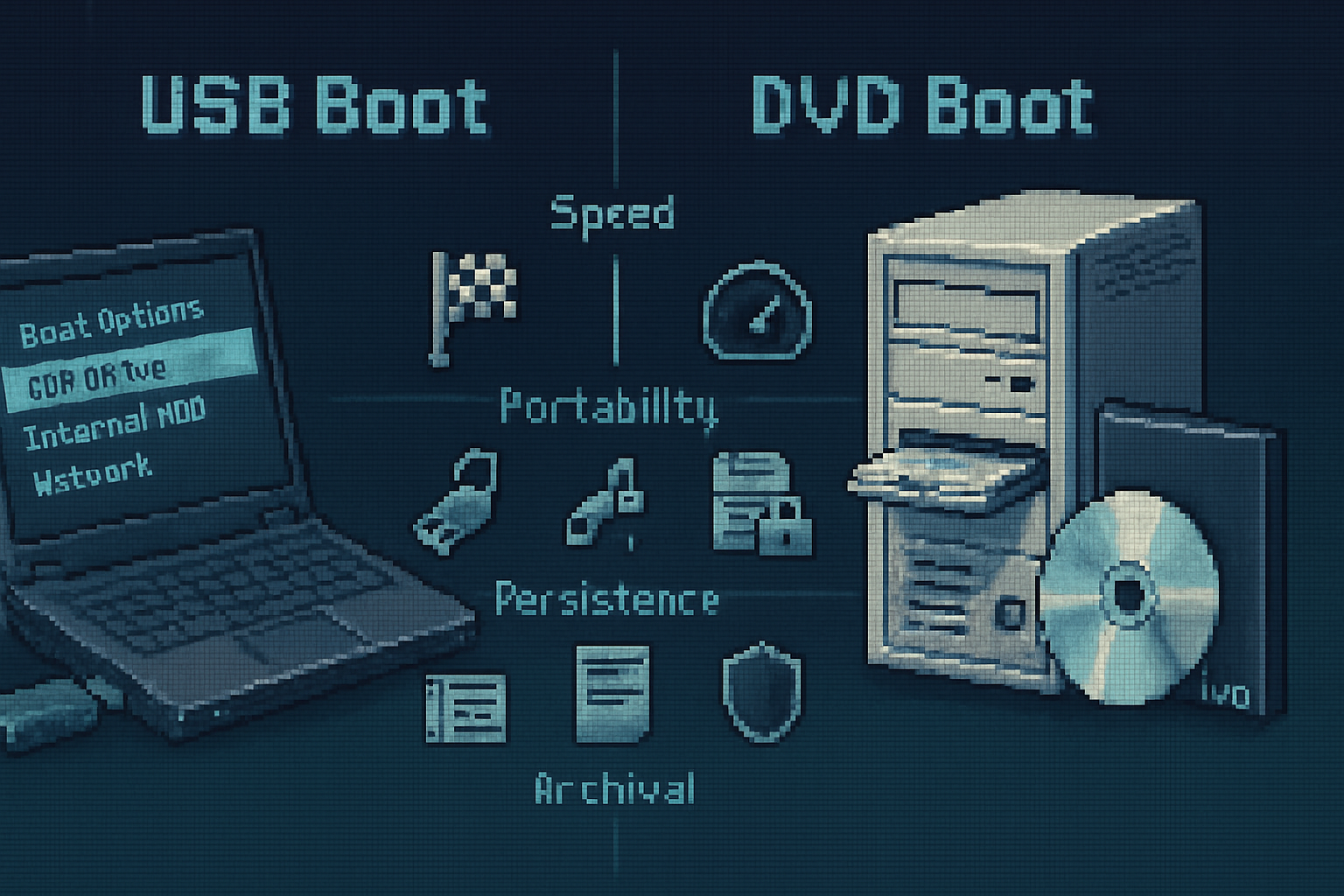· 3 min read
Top 5 Tools for Creating Bootable USB Drives
Discover the top software tools to create bootable USB drives, complete with features, pros and cons to help you choose the best solution for your needs.
Top 5 Tools for Creating Bootable USB Drives
Creating a bootable USB drive is essential for installing operating systems, running recovery tools, or even creating a portable workspace. In this post, we’ll look at the top 5 tools available for this purpose, examining their features, pros, and cons.
1. Rufus
 Rufus is a highly popular and reliable tool for creating bootable USB drives. It supports a wide range of ISO files, including Windows installations and various Linux distributions.
Rufus is a highly popular and reliable tool for creating bootable USB drives. It supports a wide range of ISO files, including Windows installations and various Linux distributions.
Features:
- Quick and efficient formatting
- Supports MBR and GPT partition schemes
- Option to create bootable drives from ISOs
- Works without installation (portable)
Pros:
- Fast performance
- User-friendly interface
- Regular updates
Cons:
- Limited to Windows OS
Learn more about Rufus here.
2. UNetbootin
 UNetbootin is another great option, particularly for users who want to create Linux live USB drives. It’s compatible with various operating systems, including Windows, macOS, and Linux.
UNetbootin is another great option, particularly for users who want to create Linux live USB drives. It’s compatible with various operating systems, including Windows, macOS, and Linux.
Features:
- Create bootable USB drives for multiple OS
- Download various Linux distributions directly
- Can also create a persistence file for saving data
Pros:
- Cross-platform compatibility
- Supports a range of Linux distributions
Cons:
- May have issues with certain Windows ISOs
Explore more on UNetbootin here.
3. Balena Etcher
 Balena Etcher is known for its sleek and simple interface, making it a favorite among beginners and advanced users alike. It supports writing images to SD cards and USB drives.
Balena Etcher is known for its sleek and simple interface, making it a favorite among beginners and advanced users alike. It supports writing images to SD cards and USB drives.
Features:
- Simple user interface
- Supports multiple image formats
- Validation of written images
Pros:
- Lightweight and straightforward
- Available on Windows, macOS, and Linux
Cons:
- Limited customization options compared to others
Check out Balena Etcher here.
4. WinToUSB
 WinToUSB allows you to create a bootable Windows USB drive and even enables you to install Windows on a USB drive. This unique feature makes it a great tool for portable operating systems.
WinToUSB allows you to create a bootable Windows USB drive and even enables you to install Windows on a USB drive. This unique feature makes it a great tool for portable operating systems.
Features:
- Supports Windows 10/8.1/8/7 ISO files
- Clone the OS from hard drive to USB drive
- Create Windows To Go USB drives
Pros:
- Versatile for Windows users
- User-friendly wizard interface
Cons:
- Some features require a Pro version
Learn more about WinToUSB here.
5. YUMI
 YUMI (Your Universal Multiboot Installer) is perfect for creating multiboot USB drives where you can choose from multiple operating systems or tools.
YUMI (Your Universal Multiboot Installer) is perfect for creating multiboot USB drives where you can choose from multiple operating systems or tools.
Features:
- Supports multiboot including Windows and Linux ISOs
- Can save files on the USB drive for each OS
- Backup options for saved data
Pros:
- Ideal for users who want multiple OS options on one USB
- Simple to use
Cons:
- May require formatting for new installations
Find out more about YUMI here.
Conclusion
Choosing the right tool for creating bootable USB drives depends on your specific needs, whether you want speed, ease of use, or the ability to install multiple systems. Each of these tools comes with its strengths and weaknesses, so consider trying a few to find the best fit for your projects. Happy booting!
